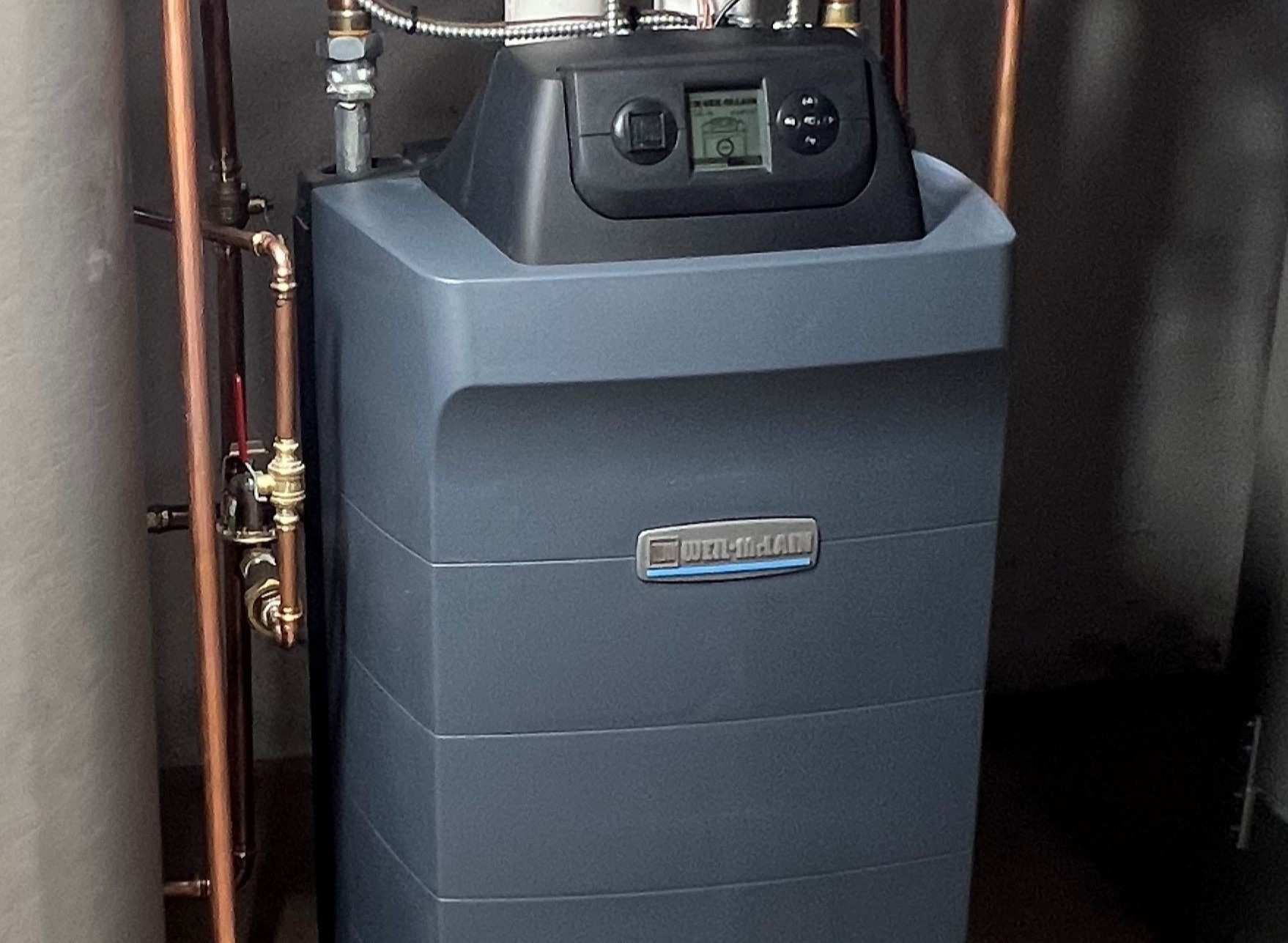
Are high efficiency boilers worth it? When it comes to keeping your home warm and your energy bills down, especially during our chilly winters, the importance of selecting the right heating system cannot be overstated. Your choice of boiler not only affects your daily comfort but also has long-term implications for your energy bills and environmental footprint. High efficiency boilers have a higher upfront cost than many other systems, but offer many advantages that make them worth it for many homeowners.
SmartHouse Heating & Cooling is a full-service HVAC company helping homeowners make their homes more comfortable and energy efficient with honest advice and personalized solutions. If you’re considering a high efficiency boiler for your St. Louis home, reach out to SmartHouse today at 314-370-1816, text us at 314-310-2242, or contact us online.
Most U.S. homes are heated with either a furnace or a boiler. Unlike furnaces, which heat and distribute air directly, boilers use water as a heat transfer medium. A properly sized, well maintained, and efficient boiler can heat a home reliably, efficiently, and safely for anywhere from 15-30 years.
The key to a boiler’s operation lies in its ability to efficiently convert fuel into heat. This process involves burning fuel, which could be natural gas, oil, or electricity, to heat up water in a closed system. The heated water or steam is then pumped through pipes to radiators or underfloor systems, which radiate the heat into your living spaces. After delivering its heat, the water or steam returns to the boiler to be reheated and recirculated, ensuring a stable and comfortable indoor temperature.
How efficiently a boiler converts fuel into heat and distributes that heat in your home is a main driver of your home’s comfort and energy bills. The term “high efficiency” in boilers is not just a marketing label; it’s a technical specification that distinguishes between boilers based on their operational efficiency. The key factor that defines a high efficiency boiler is its Annual Fuel Utilization Efficiency (AFUE) rating.
AFUE is a measure of how efficiently a boiler can convert its fuel (natural gas, oil, or electricity) into heat over a typical year. Written as a percentage, this rating indicates the amount of fuel converted to heat in comparison to the total amount of fuel the boiler uses. The higher the percentage, the less fuel is lost, and the more efficient a boiler is.
The AFUE rating for the highest efficiency boilers are around 95% or higher, while most standard boilers have an AFUE of 80-85%. While that may not seem like a big difference at first, imagine the percentage points as cents on the dollar. Over a number of years, you can save a lot more by getting back 95¢ on the dollar than 80¢.
High efficiency boilers are also called “condensing boilers,” because their ability to condense steam back into water makes them more efficient. In a conventional boiler, the hot gases produced from burning fuel pass through a heat exchanger where their heat is transferred to water (which is used to heat the house). These gases are then expelled outside through a flue. A significant amount of heat is lost in this exhaust.
High efficiency boilers, on the other hand, are designed to capture and ‘condense’ these hot exhaust gases before they are expelled. By condensing some of the steam back into water, which can be reheated, high efficiency boilers save a significant amount of energy and use more fuel for actual heating.
High efficiency boilers are also modulating. Older boilers always cold start and run at max until your desired temperature is reached. Then they shut off, and the cycle repeats when the temperature dips below your thermostat settings again.
High efficiency boilers save energy as they don’t constantly operate at 100%. Instead, once the desired temperature is reached, the boiler will modulate it’s energy use to maintain that temperature.
High efficiency boilers have 4 main benefits:
High efficiency boilers can make almost any home more consistently comfortable and more energy efficient (resulting in lower energy bills). The main downside of high efficiency boilers is the upfront cost. It can be helpful to think of a high-efficiency boiler as an investment instead of an expense. The extra efficiency and comfort will pay off down the road.
For most homeowners, that upfront cost can be offset:
Why trust SmartHouse with your new high efficiency boiler installation? One of the many things that make us different is our honesty. We empower each of our technicians and project managers to DO THE RIGHT THING every time they walk into a home. Part of that means giving an honest assessment of your home, the best way to meet your heating and cooling needs, and where your money is best spent.
At SmartHouse Heating & Cooling, we understand that choosing the right heating unit for your home in St. Louis is a critical decision that impacts not only your comfort but also your energy bills and environmental footprint. We are committed to helping you navigate this decision with expert, honest advice and tailored solutions. Let’s work together to find the perfect solution for your home. Call SmartHouse today at 314-370-1816, text us at 314-310-2242, or schedule an appointment online.